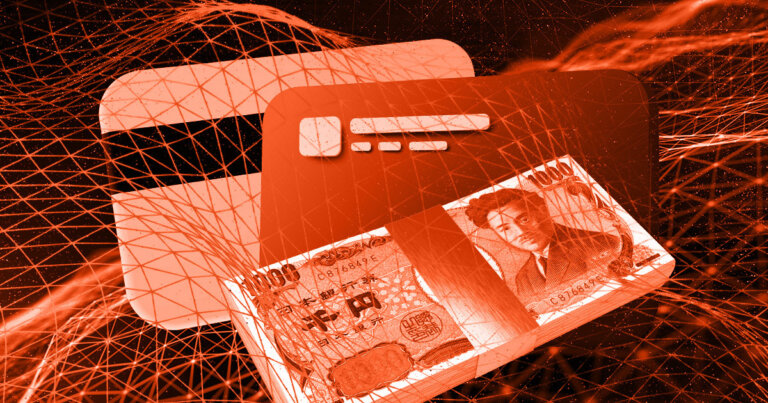 Japan Credit Bureau to test credit card-based CBDC settlement solutions
Japan Credit Bureau to test credit card-based CBDC settlement solutions Japan Credit Bureau to test credit card-based CBDC settlement solutions
Japan Credit Bureau announced it will start the “JCBDC“ pilot project to test contactless credit-card based settlement solutions for general use retail CBDC despite the central banks' cancellation of its CBDC project.

Cover art/illustration via CryptoSlate. Image includes combined content which may include AI-generated content.
Japan Credit Bureau (JCB) said will Oct. 24 that it will commence the JCBDC pilot project to test credit-card-based settlement solutions for central bank digital currencies (CBDC) using its existing credit card infrastructure.
JCB has been Japan’s only international credit card payment brand since 1981, with 146.1 million card members as of March 2022.
The collaboration will see JBC join forces with IDEMIA and SoftSpace to leverage the former’s identity recognition services and the latter’s payment solution services to realize the project’s vision of introducing retail CBDCs in the country.
Additionally, the project aims to resolve challenges such as integration with the existing payment infrastructure and creating a user-friendly CBDC for those who do not use smartphones, including the elderly and children.
The project also seeks to reverse the tepid interest among the Japanese population in the idea of CBDCs.
In August 2021, the Bank of Japan (BoJ) announced it would abandon its planned host of CBDC services after completing two phases of its CBDC testing since April 2021. The decision was made due to a lack of public interest, the prevalence of internet banking services, credit card usage, cash issuance, and e-money payment gateways.
The BoJ has reportedly stated there is no need to implement CBDCs in the near future.
The making of JCBC
Three companies will create will develop a solution consisting of three functions as part of the project.
The first will be to test CBDC settlement solutions by integrating existing JCB Contactless and Softspace’s contactless payment terminal into the payment infrastructure of stores, so users can pay via CBDCs using their smartphones.
The second solution is to test the issuance and provision of plastic cards for CBDCs, while the third is to build a simulated CBDC handling environment.
The JCBDC project aims to conclude by the end of 2022 with a payment solution at the ready, followed by demonstration experiments at physical retail stores until the end of March 2023 to identify and eliminate issues of the pilot.









































































































